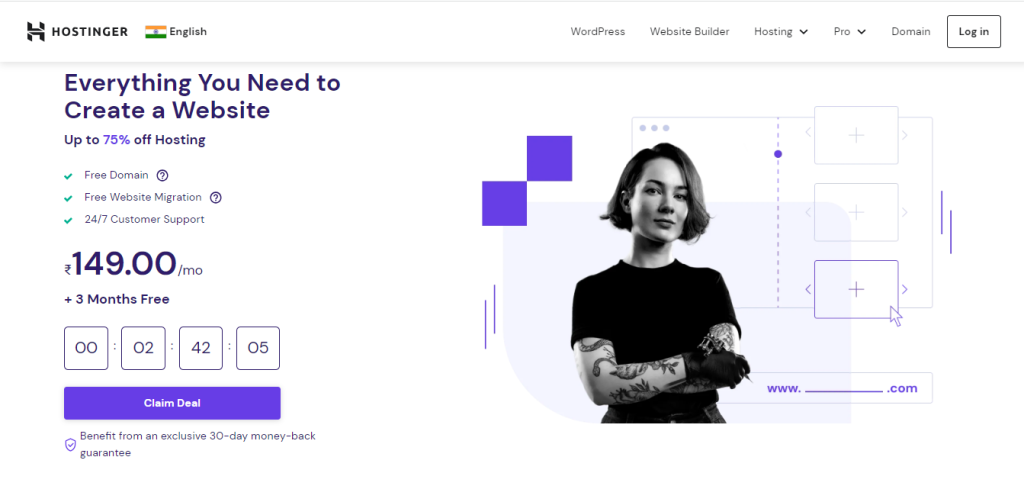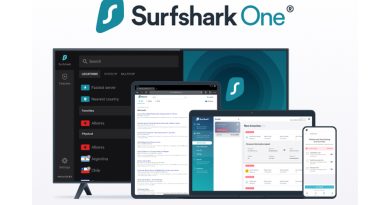Boosting Your Website’s Performance with Advanced Optimization Tools

Does your website suffer from slow loading speeds and low search engine rankings? Are you struggling to attract visitors and retain them on your site? If so, it’s time to harness the power of advanced optimization tools. These invaluable resources can help catapult your website to new heights, enhancing its performance and maximizing its potential.
In this blog post, we will delve into the world of optimization tools, exploring their purpose and benefits. We’ll also discuss the different types of optimization tools available and guide you in selecting the best one for your specific needs. So buckle up as we embark on a journey towards optimizing your website like never before!
Whether you’re a seasoned web developer or a novice entrepreneur just starting out online, these optimization tools are designed to make your life easier. From improving load times to boosting SEO rankings, they offer an array of features that can transform your website into a well-oiled machine.
So why should you use optimization tools? The answer is simple: they save time and effort while delivering outstanding results. With automation at their core, these powerful tools take care of repetitive tasks such as image compression, code minification, caching management, and much more. By streamlining these processes, they free up valuable resources for you to focus on other crucial aspects of growing your online presence.
Now let’s explore some popular types of optimization tools that are widely used in the digital realm:
1. Content Delivery Networks (CDNs): CDNs distribute static content across multiple servers worldwide, ensuring faster delivery times to users regardless of their geographical location.
2. Caching Plugins: These plugins store frequently accessed data temporarily in memory or storage devices for quick retrieval later on.
3. Image Compression Tools: Images often contribute significantly to page load times; therefore compressing them without compromising quality is essential.
4. Code Minifiers: These handy utilities remove unnecessary characters from HTML/CSS/JavaScript files, improving load times and minimizing bandwidth usage.
5. SEO Optimization Tools
What are optimization tools?
Optimization tools are powerful resources that can help improve the performance of your website. These tools are designed to analyze various aspects of your site and identify areas for improvement. By using optimization tools, you can enhance your website’s speed, user experience, search engine visibility, and overall functionality.
One type of optimization tool is a website speed test tool. This tool measures how quickly your site loads and provides valuable insights on how to optimize its performance. It identifies elements that may be slowing down your site, such as large image files or excessive plugins.
Another type of optimization tool focuses on SEO (Search Engine Optimization). These tools analyze key factors that affect your website’s ranking in search engine results pages (SERPs), such as keyword usage, meta tags, backlinks, and page structure.
Additionally, there are content optimization tools that assess the quality and readability of your content. They provide suggestions for improving grammar, sentence structure, keyword density, and overall readability.
Each optimization tool has its own unique features and benefits. Some offer comprehensive analyses across multiple areas while others focus on specific aspects like mobile-friendliness or security. The best tool for you depends on the specific needs of your website.
To use these optimization tools effectively:
1) Start by identifying the goals you want to achieve with each aspect of your website.
2) Research different optimization tools available in the market.
3) Choose a reputable tool based on user reviews and ratings.
4) Install or subscribe to the chosen tool according to its specifications.
5) Follow the instructions provided by the tool to conduct an analysis of your website.
6) Review the recommendations provided by the analysis report.
7) Implement necessary changes based on those recommendations.
8) Continuously monitor changes in performance after implementing optimizations.
By utilizing advanced optimization tools effectively in all areas mentioned above – from speed testing to SEO improvements – you can significantly boost your website’s performance!

Why use optimization tools?
Optimization tools play a crucial role in enhancing the performance of websites. But why should you even bother using them? Well, let me tell you why!
Optimization tools help to improve your website’s loading speed. In today’s digital world, people have become more impatient than ever before. If your site takes forever to load, they will simply click away and find another one that loads faster. By using optimization tools, you can compress files and optimize images to ensure that your website loads quickly and keeps visitors engaged.
Optimization tools help with search engine rankings. Search engines like Google consider page speed as an important factor when determining where to rank your website in search results. By optimizing your website using these tools, you can increase its chances of ranking higher and attracting more organic traffic.
Optimization tools assist in improving user experience (UX). A well-optimized website not only loads faster but also provides a smooth browsing experience for users across different devices. This leads to lower bounce rates and increased conversions.
Furthermore, by utilizing optimization tools, you can identify and fix any technical issues that may be affecting your website’s performance. These could include broken links or HTML errors that hinder proper indexing by search engines.
In conclusion (without actually concluding), there are numerous benefits of using optimization tools for boosting your website’s performance: improved loading speed, better search engine rankings, enhanced user experience (UX), and quick resolution of technical issues – all leading to increased traffic and higher conversion rates! So don’t underestimate the power of these handy tools!
The different types of optimization tools
When it comes to optimizing your website, there are various tools available that can help you achieve better performance and user experience. These optimization tools can be categorized into different types based on their specific functionalities.
One type of optimization tool is the SEO (Search Engine Optimization) tool. This type of tool helps you improve your website’s visibility in search engine results by analyzing keywords, checking for broken links, providing suggestions for metadata optimization, and much more. With an SEO tool, you can optimize your website’s content to make it more attractive to search engines.
Another type of optimization tool is the speed optimization tool. These tools focus on improving the loading time of your webpages by suggesting ways to reduce file sizes, compress images, minify code, and enable caching techniques. By using a speed optimization tool, you can ensure that visitors have a smooth browsing experience without facing slow loading times.
Additionally, there are security optimization tools designed to protect your website from potential threats such as malware attacks or data breaches. These tools scan for vulnerabilities in your site’s code and provide recommendations to increase its security level.
Furthermore, there are also analytics and tracking tools available that help you monitor and analyze various aspects of your website’s performance including traffic sources, user behavior patterns, conversion rates, bounce rates etc. By utilizing these insights from analytics tools effectively,you can make data-driven decisions to further optimize your website.
Overall,the different types of optimization tools serve different purposes but work together towards one common goal – enhancing the overall performance of your website.
These specialized solutions cater specifically towards improving key areas like SEO ranking,speed,user experience,and security.
Choosing the right combination of these advanced optimization tools will ultimately depend upon unique needs,priorities,and goals set forth for each individual website.
Depending on whether building a personal blog,a business ecommerce shop or client websites among others would influence which particular types would prove most effective.
It’s important not only implement these advanced tactics,but also to regularly monitor and adjust as needed.

Which optimization tool is best for my website?
When it comes to choosing the best optimization tool for your website, there are several factors to consider. You need to assess your specific needs and goals. Are you looking to improve page loading speed? Enhance SEO performance? Or optimize images and videos on your site?
Once you have identified your requirements, research different tools available in the market. Look for user reviews, ratings, and testimonials to get an idea of their effectiveness. It’s also important to consider the features offered by each tool and whether they align with your objectives.
Another crucial aspect is compatibility. Ensure that the optimization tool integrates seamlessly with your existing website platform or content management system (CMS). This will make implementation easier and more efficient.
Cost is another factor that cannot be ignored. Evaluate pricing plans carefully, keeping in mind both short-term affordability and long-term scalability.
Don’t forget about customer support. Opt for a tool that offers excellent technical assistance so you can resolve any issues promptly.
By considering these factors holistically, you can choose an optimization tool that best matches your website’s needs and helps boost its overall performance!
How to use optimization tools to improve website performance
Website optimization tools can be incredibly powerful in improving the performance and overall user experience of your website. But how exactly can you use these tools to achieve maximum results? Let’s explore some effective strategies.
Start by analyzing your website’s current performance using a tool like Google Analytics. This will provide valuable insights into areas that need improvement, such as page load times or high bounce rates.
Next, focus on optimizing your website’s speed. Use tools like GTmetrix or Pingdom to identify bottlenecks and optimize elements that are slowing down your site. Compress images, minify CSS and JavaScript files, and leverage browser caching for faster loading times.
Another important aspect is mobile optimization. With the majority of internet users accessing websites from their smartphones, it’s crucial to ensure your site is fully responsive and mobile-friendly. Tools like Google Mobile-Friendly Test can help you assess and fix any issues related to mobile usability.
Additionally, consider implementing SEO techniques to improve organic search rankings. Conduct keyword research using tools like SEMrush or Moz Keyword Explorer to identify relevant keywords for each page of your website. Optimize meta tags, headers, and content accordingly.
Regularly monitor the impact of these optimizations on your website performance through analytics tools. Track metrics such as average session duration, conversion rates, and bounce rates to evaluate the effectiveness of changes made.
By utilizing these optimization tools effectively, you’ll be able to enhance user experience while also boosting visibility in search engine results pages (SERPs). Take advantage of these powerful resources today!
Our Recommendation: Hostinger – A Perfect Web Hosting Platform

In this digital age, having a fast and optimized website is crucial for success. By utilizing advanced optimization tools, you can significantly improve your website’s performance and provide a seamless browsing experience for your visitors.
Optimization tools come in various forms, from speed testing tools to content delivery networks (CDNs) and caching plugins. Each tool serves a specific purpose in enhancing different aspects of your website’s performance.
The benefits of using optimization tools are numerous. First and foremost, they help reduce page load times, which is essential for retaining visitors on your site. Studies have shown that users tend to abandon websites that take more than a few seconds to load. By implementing optimization tools, you can ensure that your pages load quickly and keep visitors engaged.
Another advantage is improved search engine rankings. Search engines like Google consider page speed as one of the ranking factors. So by optimizing your website’s performance, you increase the chances of appearing higher in search results and attracting more organic traffic.
Now let’s explore some popular types of optimization tools:
1. Speed Testing Tools: These tools analyze the loading speed of your website and provide insights into areas for improvement.
2. CDN: Content Delivery Networks distribute copies of your site across multiple servers worldwide to deliver content faster to users based on their geographic location.
3. Caching Plugins: These plugins generate static HTML files from dynamic content, reducing server response time and improving overall speed.
4. Image Optimization Tools: They compress images without compromising quality, leading to faster loading times.
5. Code Minification Tools: These eliminate unnecessary characters from source code files, making them smaller and quicker to download.
Choosing the right optimization tool depends on various factors such as budget constraints, technical expertise required for implementation, and compatibility with your current setup or platform.
However, if you’re looking for an all-in-one solution that offers top-notch web hosting with built-in optimization features at an affordable price point – look no further than Hostinger.
Hostinger is a perfect web hosting platform that combines high-performance



